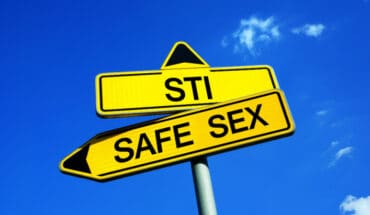As always, I churned out the same old answer about it being early days, that I am interested in many areas, and that I’ll see what I do enjoy when I start rotating around clinical placements from September. Normally, that does the trick. This time, however, my dad must have been feeling more inquisitive than usual and was keen to dig a little deeper into the problems young medics might face in the not too distant future, and how that might shed light on areas I’m already interested in, such as public health and nutrition.
As dads go, mine is pretty switched on. I suppose, for my sake, he’s kept a weather eye on everything medical in the mainstream news, and is always keen to talk about something he’s seen or read about recently. On this occasion, however, he was matter of fact in his opinion. He pointed at his Dursley-esque paunch saying, ‘You know what I reckon? This is gonna be the number one problem for you and your colleagues – fatties like me.’ I have to say, I found myself agreeing.
What followed was a healthy debate about what the NHS has come to mean for the average Brit, and why it might now have found itself in this apparently sorry state – should you believe the doomsayers and mudslingers. Whether we like it or not, an extremely expensive health-apocalypse is just around the corner and the four horsemen charging at its fore — Obesity, Old Age, Diabetes and Cardiovascular Disease — are going to cost an awful lot to keep at bay, both in money and in people’s lives. The amount? We can’t possibly know. We can pinpoint, however, one of the salient causes of this very costly bottleneck: poor health choices made time and time again by a population unsupported financially and philosophically in its efforts to be ‘healthy’.
To me, it seems like there might only be one answer to the placard wavers screaming ‘Save the NHS’. Rather than try to fiddle the funds and move around increasingly leaky buckets of finance from one group of burnt out healthcare practitioners to another, I’d wager that to save the NHS we have to begin to make sure that people don’t end up there. Train the public health to focus on to ensuring that people are better informed about health — as nebulous a concept that might be — so that they might not continue to make poor decisions. Make the NHS a service that puts preventative advice as its top priority, rather than the crisis management it is plagued by. That, and ramp up the pressure on the industries complicit in this healthcare nightmare, but that is an argument for another time.
I, for one, am certainly mature enough to recognise that not everyone has the levels of conviction and desire to cut the fags, drop the red meat, or take up hill trial cycling. But I would like to hope that the people so apparently interested in saving the NHS would jump at the opportunity to take responsibility for their own health. Don’t smoke, don’t drink much booze at all, eat mainly fruits and vegetables, and if you’re going to die, do it quickly. Sometimes, perhaps a bitter pill is necessary, and no really has to mean no.
- Save the NHS - 20th June 2016
- After the exams are over - 10th June 2016
- Medical advice, unsweetened— is medical paternalism a problem? - 29th March 2016






